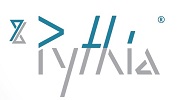Pythia International, in collaboration with U.S. applications provider, Intergraph, developed a USTDA-funded e-government urban planning and development pilot program for the Municipality of Bucharest. The e-government system – entailing the development of a public service interface, creation of a large data-base including satellite images, and building a back-office subsystem – provides citizens with a ‘one-stop-shop’ for all applications for postal addresses, certificates of urbanism, building permits, land title documents, etc., allowing them to track, on line, the actual process of their application. It also allows on-line citizen enquiry on building regulations or restrictions as well as real-time updating of urban databases. The system provides on-line display of information on where a specific government agency is located (in terms of address, location on a map, and means of public transport) as well as critical details necessary to do business with the located agency: competencies, hours of work, types of documentation required for specific applications, etc.
In a USTDA definitional mission to Uzbekistan Pythia International developed detailed terms of reference for an e-government implementation plan and taxation pilot. The plan, to be developed for the Uzbek Council of Ministers, will define the government’s current (baseline) IT and organizational environment, and provide a sequencing plan for transitioning from the baseline to the desired (target) architecture, including alignment of government processes, enhancement of networks and information systems, and development of new applications. Under the same DM, Pythia also developed a project to create a modern database and deploy an enterprise-wide IT system for the Uzbek Standards Agency. As telecommunications infrastructure is an essential enabler of both projects, the DM report included a detailed assessment of the country’s backbone networks, a review of the national telecommunications and data network providers, and a description of ongoing expansion programs. Under a follow-on project, Pythia assisted the Uzbek Communications and Information Agency (UzACI) in the contractor selection process for e-government planning and pilot project. Based on the RFP documents and Uzbekistan’s procedures for competitive selection, Pythia developed detailed evaluation sheets and selection procedures for the UzACI, including sub-criteria, supporting explanations for each item, and a break-down of the scoring point attribution.
Under a USTDA-funded project for the Romanian Ministry of Communications and Information Technology (MCIT) Pythia provided technical assistance in defining how the MCIT’s institutional capacity can be enhanced in order to better position the Ministry to oversee the planning of national e-Government systems. The project entailed assessing government ICT usage and needs, providing MCIT with managerial and institutional support to enable it to better adopt ICT solutions, and developing the technical and budgetary specifications for an integrated national e-government platform connecting the various ministries and agencies within the Government of Romania. The platform, based on Service Oriented Architecture, would insure interoperability among IT networks and databases of Ministries and Agencies and host various e-government applications such as electronic records, permits and licenses, and training of administrative personnel. To achieve these goals, Pythia outlined a legal and regulatory roadmap aimed at redefining inter-ministerial processes and strengthening MCIT’s role in national ICT/e-government development. The study also recommended, and defined the roles and responsibilities for, an autonomous Solutions Unit to be set-up as a division of the Agency for Information Society Services under the MCIT umbrella.
